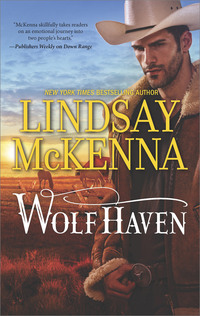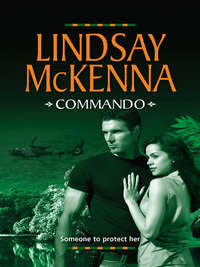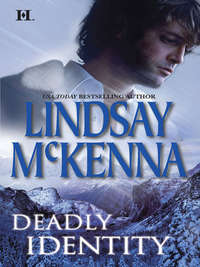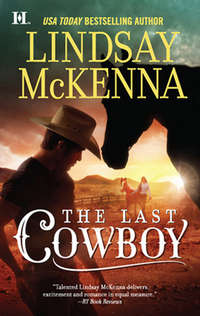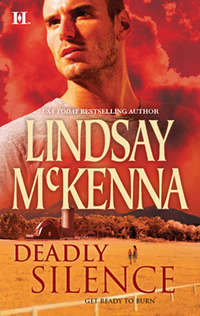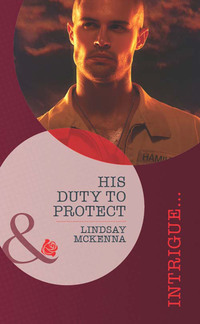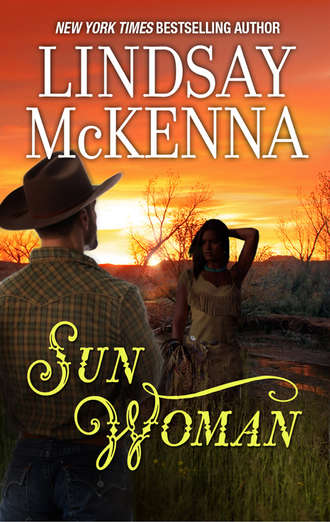
Полная версия
Sun Woman
Embarrassed, Kuchana kept her eyes on the ground between them. “It was a dream.”
Gib took one of the cups and handed it to her. “Here’s some chicory coffee. Go on, take it.” The high color in her cheeks told him that she was shamed by her tears. Gib picked up the second cup and sipped the liquid, remaining in his crouched position.
Chicory coffee was a rare treat for Kuchana. She managed a nod of thanks, holding the cup with both hands. Why hadn’t she heard the sergeant approach? Had her sleep been so profound that Two Toes could have sneaked into her tent and killed her? Usually, her sleep was light and watchful.
“Looks like you were sleeping hard,” Gib said conversationally. He had an urge to reach out and tunnel his fingers through her shining ebony hair.
“Too hard,” she muttered unhappily, drinking the coffee with relish.
“You were tired.” Tired from months of running, he thought. The army and the Mexican soldatos had been pursuing Geronimo and his people without rest for nearly six months. And Kuchana was proof of that.
“It is no excuse. I should not sleep like that. It could get me killed.” In the distance Kuchana heard the soft snort of horses, the clank of bits, the creak of saddles. A number of soldiers were up and about performing their daily duties. Chee and one of the other scouts came up to the horse line, saddling their mounts. There wasn’t much to like about Chee, Kuchana had decided. He was a swaggering, bragging male, more wind than courage, in her estimation. Chee was not a warrior. In fact, none of the scouts wore the third braid.
The tears were drying on her cheeks, and Gib searched for a way to find out more about their cause. “You said there wasn’t much of your family left since Geronimo escaped the reservation.”
A pain stabbed deeply into her heart at his words, and Kuchana bowed her head. “I have only one sister left.” The words came out low and strained.
“Was that what you were dreaming about?”
The question was gently put, and Kuchana lifted her chin, holding his gaze. McCoy had harsh features, but he was truly sensitive to others’ feelings. “I…it was of her daughter that I dreamed.”
“Oh?”
“Her daughter went to the Big Sleep just before I left.”
“And that’s the reason you came here?”
“Yes. There was not enough food…” She sniffed, taking her sleeve and wiping the tears off her face. Kuchana prayed that none of the other scouts saw her behaving like this. Looking at McCoy, she wondered at the tenderness she saw burning in the depths of his blue eyes. His look gave her a sense of safety she had never known. With a wry grimace, she muttered, “You pull my feelings out of me, Sergeant. I am not used to a man doing this.”
“I’m sorry the child died, Kuchana.” He held her wavering gaze. “As for drawing feelings out of you, all I can say is that’s good, as far as I’m concerned. I want to know how my scouts feel.” When he saw her nod, he added, “When we’re alone like this, call me Gib. I don’t like a lot of formality.”
The compassion in his voice told her much. “Does your name mean something?”
He smiled and shook his head. “I’m afraid not. My mother named me after my grandfather and great-grandfather.”
Just talking with Gib eased the pain and anxiety she carried for her people. The warmth of his husky voice was balm to her grieving heart. “Tell me your family name.”
“Gibson Justin McCoy.”
“You carry the spirit of your family with you?”
“Yes, I guess I do.” He paused. “Kuchana has something to do with water.”
She felt heat flood her cheeks and she lowered her lashes. The warmth Gib established with her was profound and new. He made her heart open like a blossom in the spring. “It means ‘woman of the waters.‘”
“Then you must feel things strongly and deeply, like water.”
With a little laugh, Kuchana said, “Too deep.”
She was beautiful when she laughed. Her eyes, dark brown with gold flecks in their depths, sparkled. And her mouth…Gib took a deep, steadying breath. When her lips curved upward, she reminded him of a sunrise.
“I don’t think it’s wrong to feel things deeply,” he countered thickly.
The burning light in his eyes made Kuchana vividly aware of herself as a woman. Just the way Gib looked at her, she felt special—and beautiful.
“Well,” he said, straightening, “you’re a woman of the waters. I think it’s a good thing. Feelings are not a sign of weakness.”
She shook her head. How odd, a man who approved of feelings.
“We’ve got plenty of things to do this morning,” Gib began. “Why don’t you get something to eat over at the chow tent and then meet me at the stables? I’m having your mare shod and then we’ll find a saddle that fits her.”
“I’ll see you at the stables,” Kuchana agreed.
Wind had already been shod with her first set of shoes by the time Kuchana made her way to the massive stabling area. There were buildings housing dried hay and grain for the hundreds of horses that milled in the huge corrals at the rear of the buildings. She found Gib with a red-haired giant of a man who had a worn leather apron draped around his thick middle.
“This is Kuchana,” McCoy told the farrier, Kelly McManus.
McManus thrust his big meaty hand in her direction. “Right nice to meet you.”
Kuchana hesitantly placed her hand in the farrier’s, unfamiliar with the greeting. She’d seen pindahs do this before on the reservation. McManus had dancing green eyes, a red mustache that drooped like twisted ropes down the sides of his mouth. As she reclaimed her hand, his smile made her relax.
“Your mare is over there,” the farrier said, pointing down the aisle of the open building where at least twenty horses were tethered.
The black mare wore a halter, and the rope was tied to an iron ring that hung from a stout wall. She pricked up her ears as Kuchana thanked the farrier and walked down the well-swept aisle.
Gib escorted her down the center of the building, walking at her shoulder. On either side were roomy box stalls, and other rooms at the rear that held tack and barrels of grain. He noticed that Kuchana had washed and neatly combed her hair. The faint scent of soap lingered around her. Memory of Melissa’s cutting remarks yesterday that Kuchana smelled came back to him. It was obvious she had tried her best to look neat and clean under the circumstances. The clothes she wore were threadbare and would have to be replaced. It crossed his mind that he would like to give her a pretty dress to wear, instead. He laughed at himself. It was the first time in his life he’d ever wanted to give a woman gifts. Kuchana invited that kind of response.
“Has your horse ever worn a saddle?”
“Yes, I had a cottonwood saddle for many years until the culo-gordos attacked our camp and I had to leave it behind.”
Wind nickered as Kuchana walked up to her. She patted the mare fondly as she inspected the new iron shoes on her hooves.
McCoy took a blue wool blanket edged with yellow and threw it across the mare’s back. “From now on, you’ve got to ride with army gear.” He pulled a black, bull-hide-covered McClellan saddle off the rack and settled it on the animal’s back. In no time, he showed Kuchana how to cinch the double girth. Next came the military-issue bridle. Wind wasn’t very happy about having a metal bit in her mouth, but she accepted it with grace after attempting to chew on it.
Kuchana stood back, amazed at all the items that McCoy had piled in front of the pommel and behind the cantle of the saddle. There were canteens, pouches for ammunition, a blanket, and containers to carry food and even grain for Wind.
“When you’re assigned to ride with a column, you’ll come over here and saddle the mare up just like this.” He saw the stunned expression in Kuchana’s eyes. “Something wrong?”
“No.” She stepped up to Wind, placing her hand on the mare’s neck. “There is so much.”
“When a column goes out, we usually patrol for five to ten days at a time.” Gib gestured to the saddle that had been created for endurance riding. “We have a saying in the army. We ride forty miles a day on beans and hay. The pack mules carry the hay and most of the food, but sometimes, on a forced march, we have to rely on what we can carry on our saddle.”
“Pindah horses can never keep up with our horses,” Kuchana noted proudly. She pointed to a bay gelding tied next to Wind. “Look at him. He is grain fed. I have seen many army horses unable to stand the heat or the distance.”
“You’re right. I told the officers here they shouldn’t feed our animals grain.” He grinned, giving the mare a pat on the shoulder. “We ought to train our horses to eat cactus like you do yours.”
“Wind will not die on a march. She knows to eat cactus for food and also water in order to stay alive.”
“The Apache know how to survive,” Gib agreed with a smile. “Come on, let’s go over to Supply. We’ll be coming back to do some hunting, so leave Wind saddled.”
Kuchana’s eyes shone with excitement as she walked with Gib toward another large two-story adobe building. “We hunt four-leggeds?”
“Yep. I figure the only way to get Chee and the colonel to believe in you is to prove your worth as a tracker. Lieutenant Carter ordered Chee to send someone out to the mountains over there—” he pointed to the north “—and kill some deer or bighorn for the officers’ families.”
“I will prove myself worthy.”
Gib saw the challenging fire in her eyes. “Well, whatever we kill, some of it is going to be dropped off to Poppy so she can distribute it among the laundry families.”
“Who is Poppy?”
“One of the women who washes clothes.”
“A dark-skinned one?”
Gib smiled “Yes.”
As they climbed the steps of Supply, Gib noticed the soldiers giving Kuchana discreet looks. He led her inside the building where clothing, weapons and tack were kept. Sergeant Mulrooney, head of Supply, nodded a good-morning to them.
“Kuchana needs a scout’s issue, Sergeant,” Gib told the gray-haired man.
“Right away, Gib.”
Kuchana turned around, looking at the columns of boxes stacked around the room. There were huge piles of green wool blankets, canteens, saddles and row upon row of rifles.
McCoy was sure that she’d never seen so many new things. Her face glowed with excitement when Mulrooney led her to the clothing section.
A blue wool uniform jacket was finally found to fit her slender build. When she gently ran her fingers reverently over the brass buttons, Gib found himself wondering what her touch would feel like on his skin. The unexpected thought was inviting.
Mulrooney gave her a set of blue kersey pants to replace the thin ones she wore. When he tried to give her a set of black boots, she adamantly refused them, saying that her hardy kabun boots were better. The distinctive curled toes on the boots were good for picking up and moving poisonous snakes or Gila monsters out of her path with ease and safety. The black boots had a rounded toe and were, in her opinion, worthless.
Gib watched Mulrooney’s reaction to Kuchana. The old supply sergeant couldn’t seem to do enough for her. Crossing his arms on his chest, Gib leaned against a rough beam and watched them with pleasure. He was sure it was Kuchana’s winsome smile and her bubbling gasps of delight that spurred Mulrooney to hunt for just the right items.
When Mulrooney brought out five brightly colored cotton shirts, Kuchana gasped. Her fingers moved lovingly across the shirts. The supply sergeant blushed fiercely when he gave them to her.
“These are all mine, Sergeant?” she whispered in disbelief, holding them in her arms as if they were a babe.
“Why, sure, Kuchana. Every scout gets five of ’em. Don’t look like I just gave ya the world, girl. Go on, take ‘em!” he ordered gruffly with a wave of his hand.
Gib suppressed a smile as Mulrooney colored even more deeply when Kuchana gave him a smile.
“A-co-‘d,” Kuchana whispered, hugging the beautiful shirts to her breast.
“Ahh, don’t get sentimental on me, girl.” Mulrooney slanted a glance at McCoy. “Git her outa here before she cries.”
Smiling, Gib nodded and, picking up the rest of Kuchana’s issue, walked to the door. She came to his side, marveling at the cotton shirts.
“Come on, let’s get this gear back to your tent,” he told her.
Chapter Four
Melissa was just coming out of her quarters in the officers’ building when she spotted Sergeant McCoy and Kuchana. This morning Clarissa had fashioned her blond hair in a cascade of curls that grazed her shoulders. With her straw bonnet decorated with brightly colored ribbons and her apple-green dress, she knew that she presented a comely picture. She’d brushed her bangs, making sure they were in place across her wing-shaped brows.
A beautiful woman was a rarity at any post, and Melissa reveled in the wishful and admiring glances the hard-bitten army men gave her. Why hadn’t the sergeant looked at her that way, too? He acted as if she didn’t exist, and that made her angry. Her gaze followed McCoy. If her eyes didn’t deceive her, he looked almost happy. And he was carrying most of the Apache’s issue for her. Envy of Kuchana rippled through her. Tapping her fan furiously in her opened palm, Melissa fixed a smile on her face as they approached.
“I declare, Sergeant, you look more like a pack animal than a man beneath that load.”
McCoy halted. Normally, he’d have tipped his hat to the wife of any man, but both arms were full. “Good morning, Mrs. Polk.”
Melissa hated the impervious look he gave her. The Indian woman halted at his side, gawking up at her like a child, obviously enthralled with the dress she wore. “Why, Kuchana—that is your name, isn’t it?”
Kuchana nodded. “Yes, it is.”
McCoy scowled, sensing the coldness behind Melissa’s smile. “Mrs. Polk, as you can see, we’re loaded down. I’ve got—”
“Nonsense, Sergeant.” She smiled warmly at Kuchana and stepped off the wooden porch. With her fan, she tapped the variety of cotton shirts Kuchana held in her arms. “My, my, what do we have here?”
Eagerly holding up the shirts for inspection, Kuchana said, “Look, the army has given me the colors of the rainbow.”
Wrinkling her nose, Melissa leaned over. “Why, I believe they have, Kuchana.” She giggled. “A rainbow of colors. First time I’ve ever heard that expression applied to army issue.”
Gib gritted his teeth. Kuchana was too trusting of others. Honesty and truth were the Apache way of life. Greed, envy and jealousy were not tolerated, because they threatened the existence of the tribe as a unit. Kuchana had no experience identifying or dealing with Melissa’s type of woman. She needed to be protected. She was being led to slaughter. “Mrs. Polk—” he began.
Melissa glared at him. “Sergeant, why don’t you just toddle on over to your favorite place, the scouting area? You seem to enjoy the savages much more than your own kind. I insist upon talking with Kuchana.”
Holding on to very real anger, Gib studied the officer’s wife. “I’m sure you’re aware that if Kuchana is caught in a restricted area without the regulation escort, she can be punished.”
“Oh, my!” Melissa shrugged delicately. “Of course, you’re right, Sergeant. Well, just a few more minutes, then. You look brawny enough to carry that load. You’re such a gentleman, after all.” She swung her attention back to Kuchana, hating McCoy for his accurate appraisal of the situation. If he had left, Melissa would have made sure Kuchana was placed on report for being in the officers’ area unescorted. Harvey didn’t stand still for such infractions by coloreds or savages. Damn McCoy, anyway!
“So, you like colors?” Melissa asked the Indian sweetly.
Kuchana nodded, not understanding the tension between McCoy and the pindah. “You also wear rainbow-colored clothes.”
Melissa tilted her head and gestured to the frock she wore. “I just knew that beneath that Apache skin of yours, there was a woman. I’m delighted to know you like dresses. But I’d use these rags to dry off my horse after a long run.”
The insult was lost on Kuchana, but Gib tensed. “Mrs. Polk, I’ve never seen you rub down a horse after you’ve run it into the ground. Matter of fact, I don’t believe I’ve ever seen you around the stabling area. Josh always brings your mount to your front door.” Melissa was known to ride hell-bent-for-leather, purposely losing her army escort to gallop freely off the post whenever she pleased. The only problem with that was that someday, if she wasn’t careful, she could get killed or captured by marauding Indians or comancheros. All that, however, was lost on Melissa, who viewed the world as one dramatic and exciting event after another.
Fire flashed in Melissa’s eyes. “That will be all, Sergeant.” She smiled coldly at him, noting the tight, angry lines in his sweaty features. “Or are you planning on running off with this helpless female, too?” She whipped the fan outward, hiding her lower face, batting her lashes, and moved with slow, measured steps toward headquarters.
“That brat,” Gib whispered under his breath after she was out of earshot. He turned to assess the damage Melissa had done to Kuchana. Her face was free of any anger or upset. Instead, he saw confusion in the depths of her eyes.
“Come on,” Gib ordered tightly.
Kuchana had long legs and was able to keep up with his striding pace. Frowning, she asked, “What does she mean, running off?”
“I’ll tell you on the trail, Kuchana. Right now, all I want to do is get away from this post.” Specifically, away from the scheming Melissa Polk. Why Melissa had him earmarked as a target for her cutting tongue was beyond him. She flirted outrageously with him whenever she got the chance. Gib knew his actions at Fort Apache had been carried here along with his transfer. He didn’t dare openly challenge Melissa, because she’d run to that spineless husband of hers and complain. And then he could be brought up on charges again. Women were definitely a problem in his life.
The mountains above the valley were sitting silent, waiting for the sun to rise over their peaks. Once she was in the rolling hills above the fort, Kuchana trotted her mare abreast of McCoy’s bay gelding. Gib had a rope in his gloved hand and two brown mules in tow behind his horse. If he and Kuchana made a kill, the mules would carry it back.
As Holos’s first rays tipped the mountains, Kuchana nudged Wind closer to Gib’s mount, not wanting her voice to carry and frighten off any wild animals in the vicinity. “You said you would speak of running off.”
“I did, didn’t I?” Kuchana rode as if born to the animal. Apaches, however, were equally at ease on foot, covering up to thirty or forty miles a day. Sometimes, when being pursued by the army, they would run their horses until they died, and then continue on foot, handily outdistancing the cavalry.
He cleared his throat, his gaze scanning the juniper and piñon coming into view as they climbed higher out of the desert.
“Juliet Harper is the wife of the commander of Fort Apache,” he began. “Her husband, Colonel Phillip Harper, drinks too much alcohol.” When he saw that Kuchana didn’t understand the term, he used the term “firewater,” instead.
Kuchana wrinkled her nose. “I saw what firewater did to our people when we were on the reservation. Men go heyoke, crazy.”
“Yes, and that’s what Harper did. Almost every day,” Gib added grimly.
“And Juliet was upset?” She knew how irritated the wives of the warriors became after their men stumbled around drunk and incoherent for days on end.
“It was worse than that, Kuchana. Harper would drink at night in his home, and then he’d beat his wife.”
Her eyes widened. “Beat her?”
“Yes.”
She frowned. “A warrior does not hurt women and children. They are bound by the laws of Usen to protect them.”
“I wish we had such laws, but we don’t,” Gib muttered. “Juliet was taking a beating almost every night. One time, she ran from her home and I happened to be out checking sentry posts. I heard someone sobbing and found her hiding in a dark corner with her hands covering her head. I held her until she quieted. That was when I found out about the beatings and Harper’s drinking problem. Anyway, after that, Juliet would confide in me. I was the only one on the post who knew that she was slowly being beaten to death.”
“If you knew, didn’t you challenge Harper?”
“Kuchana, it’s different in the army than in your world. I was a lieutenant, and Harvey was a colonel. If I tried to interfere, he’d have crucified me.” Gib laughed derisively. “A month later, Juliet came to me, begging me to help her run away. She wanted an escort to the stage line thirty miles away. She planned on running away from her husband and going back East to her parents.” He lifted his hat, wiping the sweat on his brow with the back of his sleeve, then settled it back on his head. “It would have ruined Harper’s career, but Juliet was desperate.”
“To see a woman hurt by a man must have bothered you greatly,” said Kuchana. “You’re not the kind of warrior to stand aside and allow it to happen.”
“You’re right, I couldn’t.”
“You helped this woman?”
“I finally agreed to escort her to the stage. We worked out the plan, and one night, a week later, we made our escape. Halfway to the stage, Harvey intercepted us with a troop of cavalry. Apparently he’d overheard Juliet talking with one of the other officers’ wives. That woman turned Juliet in to her husband. He knew all along of Juliet’s plan of escape.”
Her eyes rounded. Gib was grim. “You’re a man of bravery.”
“In pindah society, you’re not rewarded for trying to help in a situation like that. I got hauled up on charges and busted from officer to enlisted status.” Gib managed a thin smile. The wind played with strands of Kuchana’s ebony hair, lifting and settling them back on her shoulder. Her red cotton shirt brought out the smooth planes of her high cheekbones.
“They punished you? How could they?” Kuchana’s indignation was impassioned. “What you did was good and right.”
“Not in the army’s eyes. Things are different between pindahs and your people, Kuchana.”
“You are more like an Apache than a pindah.”
Laughing, Gib placed his hand on her shoulder. “Maybe I am.” Her eyes widened at his gesture and he cursed himself. What the hell had gotten into him? Withdrawing his hand, he tried to break the bond of warmth that existed between them. No woman had reached inside him as she had. It was disconcerting. “Up there,” he said gruffly, pointing to the top of a hill, “is where the deer and bighorn have a trail. There’s a watering hole down on the other side where we can put your tracking skills to use.”
Kuchana nodded. She saw that Gib was embarrassed by his gesture. Trying to ease his discomfort, she asked, “Why does Melissa dislike you?”
Kuchana hadn’t missed a thing. Gib wasn’t really surprised. “Some pindah women,” he said, “think they are better than other people, Kuchana.”
“She wears very beautiful dresses.” Kuchana sighed and then smiled.
A grin edged Gib’s mouth. “Yes, she does. But be careful of her—her friendship is not sincere.”
Shrugging, Kuchana began to look for animal trails at the crest of the hill. “She wasn’t unkind to me.” The area was dotted with small, scraggly piñon, which were good food for her people, when they could get to them. In the month of Many Leaves, the sticky green cones were filled with delicious nuts. “She liked the shirts the army gave me,” she added with a smile.
Halting his horse, Gib watched her study the ground. Her mouth became pursed, her eyes hooded. “Look, Melissa wasn’t being complimentary about your shirts,” he warned.
Looking in his direction, Kuchana said, “She was smiling.”
Uncomfortable, Gib chose not to pursue the topic. Kuchana was naive to the wiles of women like Melissa. “Well,” he muttered, “just try and stay as far away from her as you can.” He knew from experience that the backbiting that went on among white females did not exist within the Apache community. And if it did occur, the guilty woman was pressured to resume a more humble demeanor in order to get along with the other people of the tribe.




